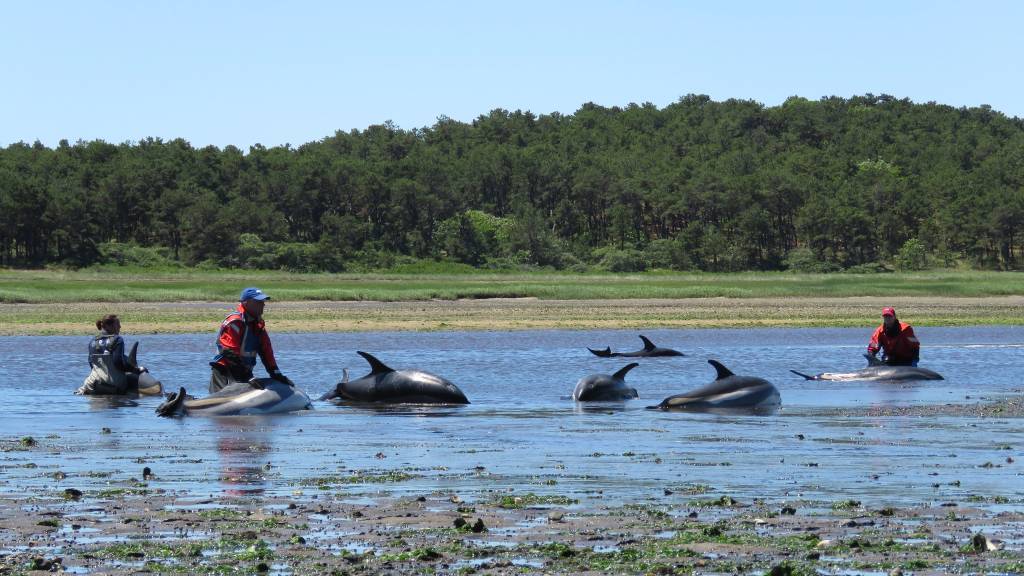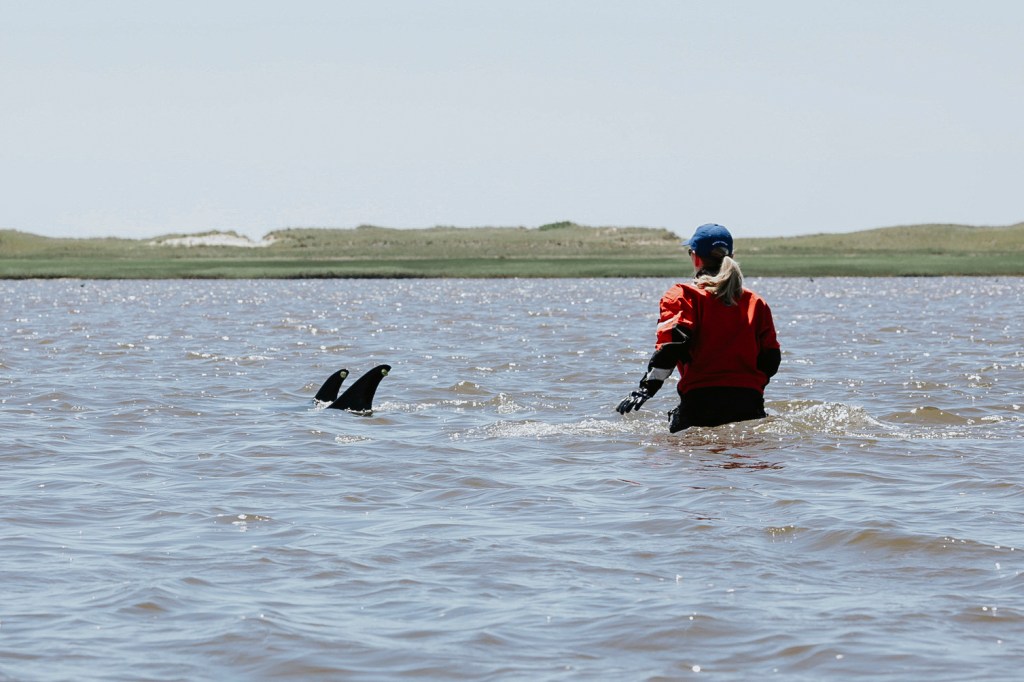Over 100 dolphins left stranded on muddy Cape Cod beach before being rescued
More than 100 dolphins were stranded on a muddy beach off Cape Cod, Massachusetts, before rescuers swooped in and saved most of them.
The International Fund for Animal Welfare was notified early Friday morning that 10 Atlantic white-sided dolphins were close to shore, a spokeswoman said.
When staff and volunteers arrived, they found 125 animals stuck in the shallow mud flats of Wellfleet, in an area called the “Gut,” or Great Island at the Herring River; 10 were already dead.

The nonprofit organization called it “the largest single mass stranding event” in its 26-year history.
It took 150 people and 12 hours to herd the dolphins to safety, according to a news release.
“The dolphins were herded in a highly coordinated response effort to encourage their movement
back to deeper waters, first on foot and then switching to boating efforts as the water returned to
high tide at 4:56 pm,” the organization said in the release.
“Two IFAW vessels and the Wellfleet Harbormaster continued their efforts until sunset at 8:15 pm.”

All but 10 to 15 of the Atlantic white-sided dolphins — which grow to about eight to nine feet in length and 360 to 505 pounds — “made it out to deeper waters before dark,” the spokeswoman said, “and we assume those remaining found their way.”
Cape Cod is considered a global hotspot for live mass dolphin strandings.
The International Fund for Animal Welfare responds to an average of 268 strandings per year, the spokeswoman said.
“Dolphin and porpoise strandings on Cape Cod are driven primarily by the gently sloping sand flats, large tidal fluctuations, close proximity to productive feeding grounds, social nature of the species that strand, and the hook-like shape of the Cape itself,” the spokeswoman said.
“Many of the dolphins and porpoises that strand in this area have no clinically significant pre-existing diseases that cause them to strand.”







